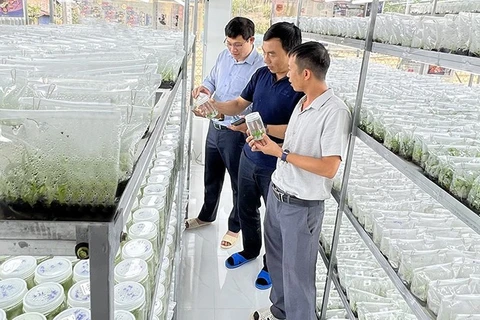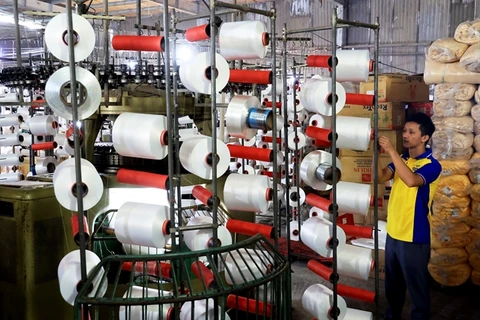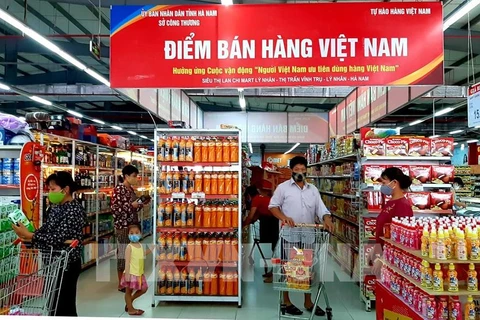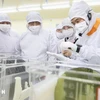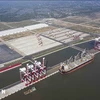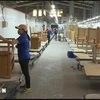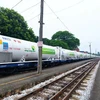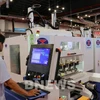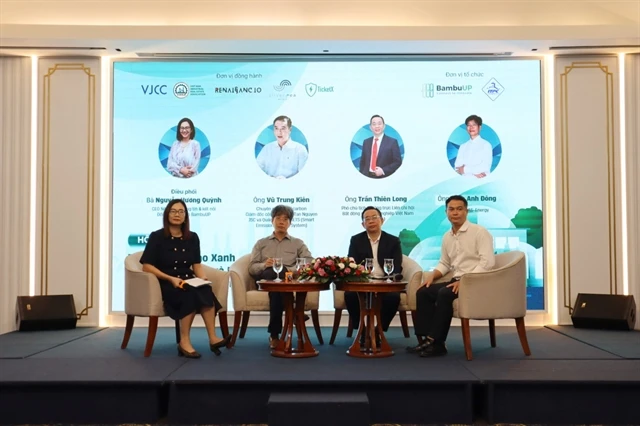
HCM City (VNS/VNA) - Businesses, factories, industrial parks and export processing zones need to have road maps and measures for switching from traditional to green models to meet the global sustainable trend and enhance their competitiveness, and attract investment, a seminar heard in Ho Chi Minh City on August 8.
Organised by the Investment and Trade Promotion Centre of HCM City (ITPC) and the BambuUP Innovation Platform, the “Green Innovation in Factories and Industrial Parks: Going with the Flow for sustainable development” seminar sought to help businesses, industrial parks and factories adapt to new market and consumer trends, seamlessly and effectively access and apply green transformation technologies and save time and resources in building sustainable production strategies.
Nguyen Huong Quynh, Director of BambuUP, said from now through 2030, businesses will operate in a brittle, anxious, non-linear, incomprehensible (BANI) world, reflecting an unstable environment that poses challenges to businesses.
She also discussed the increasing demand for sustainability from the market and society, saying businesses need to embrace green transformation to survive and thrive.
She listed ten global megatrends, including technological advancements, demographic changes, future of work, climate change, global climate action, and renewable energy and electric vehicles, saying three of them are associated with sustainable impacts on the climate.
Green transformation needs to become an urgent strategy for manufacturing enterprises to improve their competitiveness, attract green investment and ensure sustainable impacts in an unpredictable BANI world.
She said the global Green technology and Sustainability market was valued at 28.6 billion USD in 2024 and is expected to grow at 29.5% a year to reach 134.9 billion USD by 2030.
She also spoke about five popular green production trends: energy optimisation, making products with sustainable elements, minimising waste generation and waste recycling, increasing the use of smart technology in production, and lean manufacturing.
In an era when environmental concerns are at the forefront globally, if businesses do not switch to green production they would completely lose their competitive advantage in two or three years, she warned.
The Government has rolled out policies to promote green and sustainable development, offering support to businesses, she added.
Tran Thien Long, permanent Vice Chairman of the Vietnam Industrial Real Estate Association, said his association has recently received five business delegations looking for eco-industrial parks to set up plants.
With the increasing demand for sustainability, he said new industrial parks must follow green models from the beginning and existing ones need to quickly embrace green transformation.
He also discussed the challenges faced by businesses in transforming, including a lack of funding, knowledge, and capacity and difficulties integrating ESG factors into their existing models.
He called for more support policies from the Government to help businesses go green.
He said businesses need to assess the impact of green transformation trends and carbon taxes, monitor environmental regulations, use technology and participate in green projects, and familiarise themselves with greenhouse gas emission calculation methods.
In a presentation, Tran Anh Dong, Director of CAS-Energy, emphasised the important role of eco-industrial parks in Vietnam.
He pointed out the difficulties faced by manufacturing enterprises in green transformation, such as finance, resources, and support policies, especially in the initialisation and operation stages.
He referred to solutions such as REGreen Factory that could help businesses integrate renewable energy and optimise costs, while meeting ESG and CSR standards and increasing their competitiveness in export markets.
Another topic that featured at the seminar was converting green production into carbon credits.
Vu Trung Kien, a carbon credit expert, director of NRG - Tan Nguyen JSC and SETS (Smart Emission Trading System) project manager, said: “Since 2021, the demand for carbon credits has increased dramatically and is forecast to reach from 8,000-13,000 metric tonnes of CO2 equivalent (MTCO2e) per year.
The supply is also forecast to increase by around 8,000 MTCO2e per year to meet the increasing demand.
Greenhouse gas inventories are the first step for businesses to assess emissions and build a roadmap to reduce them.
Green technology effectively reduces emissions, and green finance helps businesses invest in these technologies, creating a sustainable development circle, he added.
The event also included panel discussions on solutions for factories and industrial parks in the south to overcome the difficulties they face in going green, shared the experiences of successful models, and suggested practical technological solutions.
Enterprises participating in the event received direct consultation from experts.
Ho Thi Quyen, ITPC’s deputy director, said to take advantage of opportunities and benefits from green finance, having a mindset and road map for the transition from the traditional to the green model.
ITPC would continue to organise more seminars and training programmes to help businesses make the green transformation, she added./.
